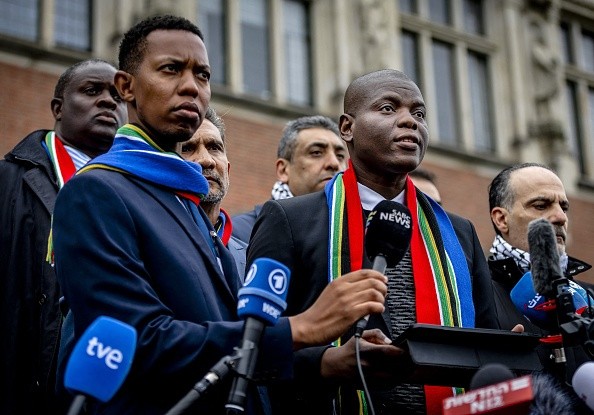Israeli leaders have allegedly minimized their contentious remarks about Palestinians, attributing their stance to the trauma resulting from the Hamas attack on October 7.

Fighting "human animals," "making Gaza a "slaughterhouse," and "erasing the Gaza Strip from the face of the earth", are just a few of the comments that have been made by Israeli leaders, soldiers, and entertainers.
Rights groups and activists say they're an inevitable byproduct of Israel's decades-old, open-ended rule over the Palestinians and that they've intensified during the war. They say such language has been left unchecked, inciting violence and dehumanizing Palestinians.
"Words lead to deeds," said Michael Sfard, a prominent Israeli lawyer, told The Associated Press. "Words that normalize or legitimize serious crimes against civilians create the social, political, and moral basis for other people to do things like that."
With the ground offensive getting underway in late October, Prime Minister Benjamin Netanyahu cited the Bible in a televised address: "You must remember what Amalek has done to you." Amalekites were persecutors of the biblical Israelites, and a biblical commandment says they must be destroyed.
South Africa argued that the remarks showed Israel's intent to commit genocide against Palestinians. Netanyahu denied that this week and said he was referring to Amalek as a way to describe Hamas and its attack. Two days after the Hamas attack, Defense Minister Yoav Gallant said Israel was "fighting human animals," in announcing a complete siege on Gaza.
Deputy Knesset speaker Nissim Vaturi from the ruling Likud party wrote on X, formerly known as Twitter, that Israelis had one common goal, "erasing the Gaza Strip from the face of the earth." Israeli Heritage Minister Amichay Eliyahu, from the far-right Jewish Power party, suggested that Israel drop a nuclear bomb on Gaza and said there were "no uninvolved civilians" in the territory, reported AP News.
What Does Israel Say?
Defending Israel in court, lawyer Malcolm Shaw said the remarks were made mostly by officials with little role in determining Israeli policy, calling them "random quotes" that were misleading and had been in some cases repudiated by Netanyahu.
But Roy Schondorf, a former Israeli deputy attorney general, said in an interview that the statements still carried risk, even out of context: "It would have been better if some of these remarks had not been said."
As Israel vehemently denies the charges brought against them, South Africa is asking for a series of legally binding rulings declaring that Israel is breaching "its obligations under the Genocide Convention" - a decision that could take years - and for a binding interim order that Israel ceases hostilities, a ruling on which is expected in the coming weeks.
Israel says it's fighting a war of self-defense against Hamas after it killed 1,200 people, mostly civilians. Officials say the country adheres to international law and does its utmost to protect civilians, blaming the high death toll on Hamas for embedding in civilian areas. More than 24,000 people have been killed in Gaza, mostly women and children, according to the Health Ministry in Hamas-ruled Gaza.
While little appears to have been done to confront violent rhetoric directed at Palestinians, Palestinian citizens of Israel who have shown empathy for people in Gaza are facing a crackdown, said Adalah, a legal rights group. Police say the speech amounts to incitement, promotes violence, or shows support for terror groups.









